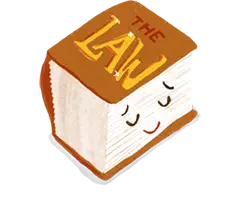Topic
Industry rules
This page contains different parts of laws about Industry rules, within the topic of Business.

Important laws about Industry rules
Weights and Measures Act 1987
Explaining important words and ideas in the Weights and Measures Act
2: Interpretation
Weights and Measures Act 1987
This law applies to everyone, including the government
3: Act to bind the Crown
Weights and Measures Act 1987
The government keeps special measuring tools to make sure weights and measures are correct
5: Departmental standards
Weights and Measures Act 1987
Inspectors get special measuring tools to check if things are the right size or weight
7: Inspectors' working standards
Weights and Measures Act 1987
Rules for keeping and checking measurement tools used by certified measurers
7A: Accredited persons' working standards
Weights and Measures Act 1987
When you can use different ways of measuring things instead of the metric system
9: Exceptions to obligations to use metric system of weights and measures
Weights and Measures Act 1987
You must use metric units when selling things in New Zealand
10: Obligation to use metric system in advertising goods for sale
Weights and Measures Act 1987
When you don't need to use metric measurements in ads for selling things
11: Exceptions to obligation to use metric weights and measures in advertising goods for sale
Weights and Measures Act 1987
The government must okay measuring tools before they can be used officially
20: Approval of appliances
Weights and Measures Act 1987
Weights and measures used for trading need a special approval stamp
21: Weights and measures to be stamped with mark of verification
Weights and Measures Act 1987
This explains how to get a certificate that shows your weights and measures are correct
22A: Certificate of accuracy
Weights and Measures Act 1987
Telling someone their scales or measuring tools don't follow the rules
23: Notification of non-compliance
More laws about Industry rules
About this project
What is this project?
This project is an experiment to take difficult language, and make it easier to read and understand for everyone.
How do we do this?
What's our process for taking the law and turning it into plain language?
Why is the law written like it is?
Laws are often hard to read. They use a lot of words and language we don't usually use when we talk.
Should we use AI for this?
What are the good and bad sides of using AI?
Is this information the actual law?
We hope that this information will help people understand New Zealand laws. But we think that it's important you talk to someone who understands the law well if you have questions or are worried about something.
You can talk to Community Law or Citizen's Advice Bureau about your rights.
Remember that AI can make mistakes, and just reading the law isn't enough to understand how it could be used in court.
You can talk to Community Law or Citizen's Advice Bureau about your rights.
Remember that AI can make mistakes, and just reading the law isn't enough to understand how it could be used in court.




